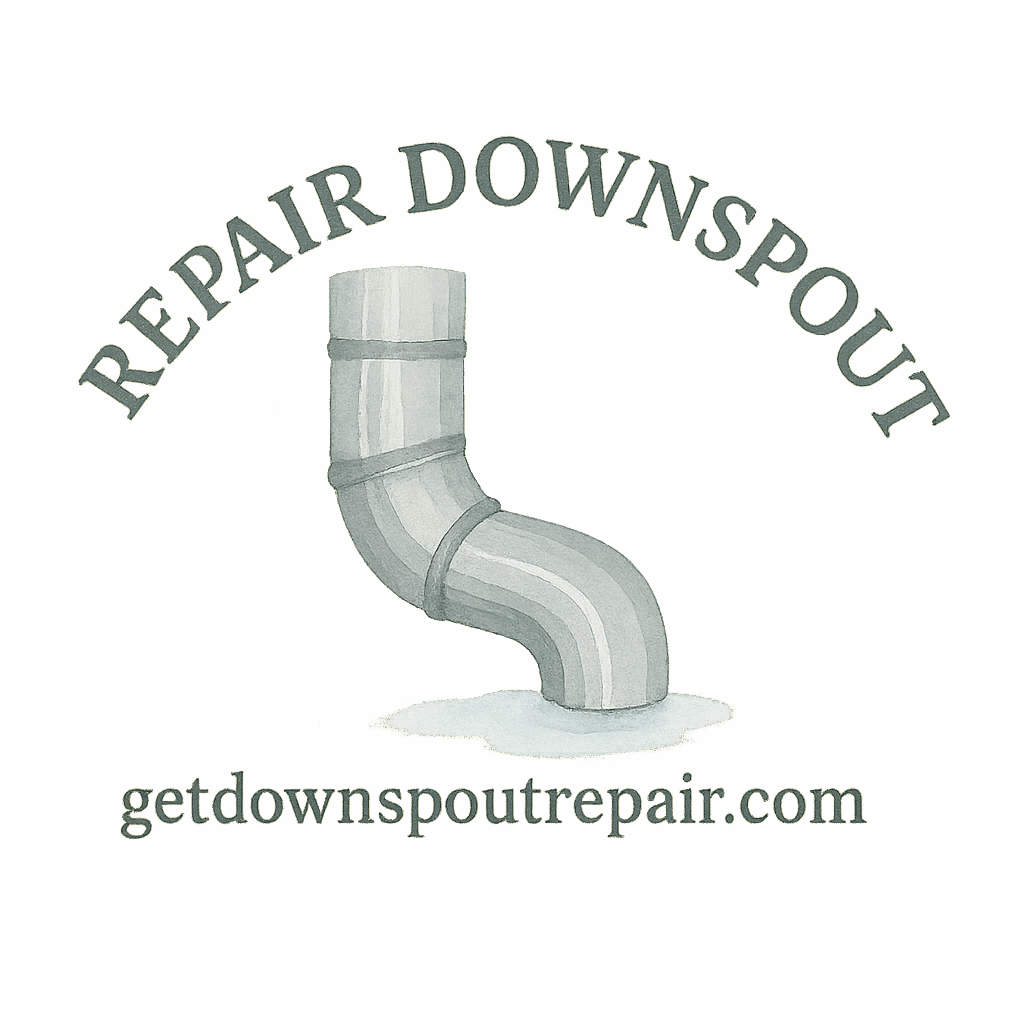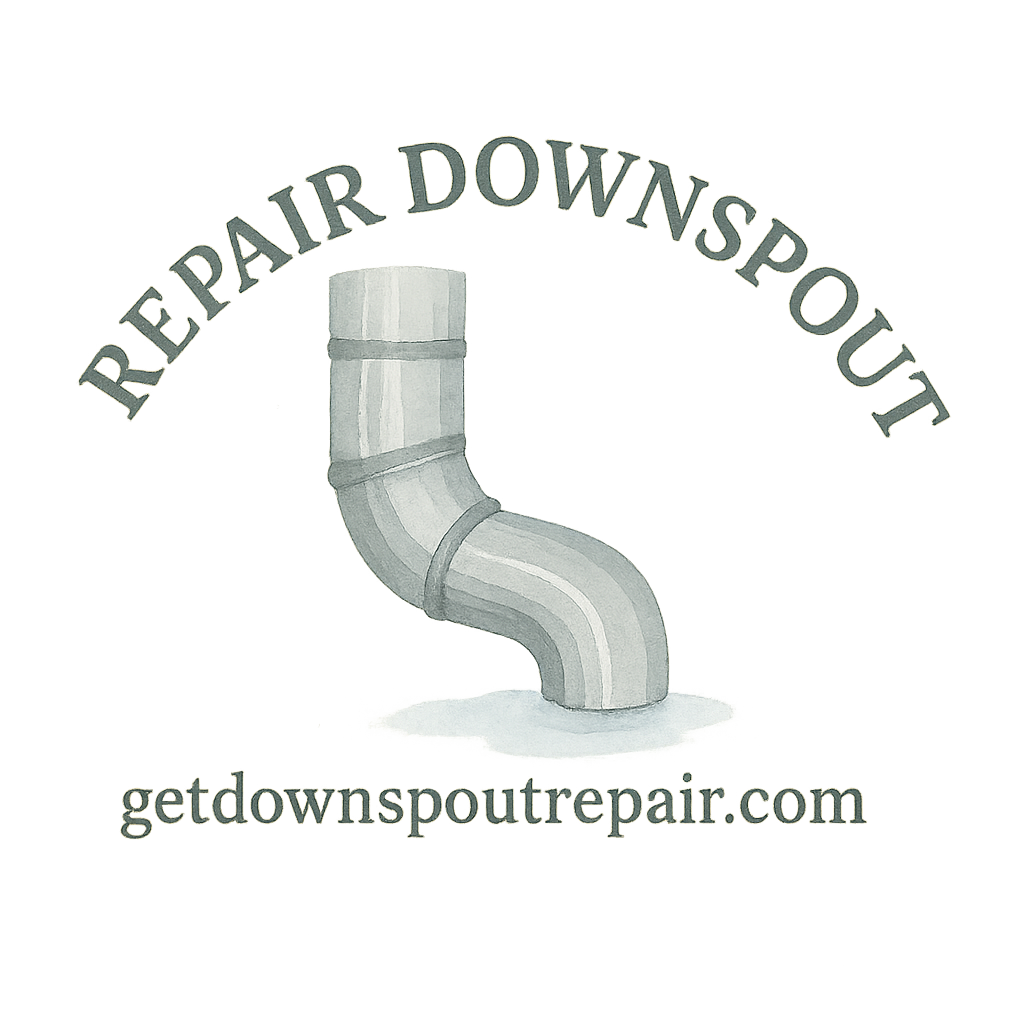Introduction: Why Downspout Repairs Matter Today
If you own a modern home, chances are you’ve dealt with at least one downspout issue. From leaks to clogs, downspout problems can sneak up on you, often leading to water damage if left unchecked. And let’s be honest—calling in a pro every time something goes wrong can burn a hole in your wallet. That’s where DIY downspout repair steps in.
The good news? Homeowners today have access to clever innovations that make fixing downspouts easier, cheaper, and more efficient than ever before. In this guide, we’ll explore five game-changing DIY downspout repair innovations that you can use to protect your home, cut costs, and even boost curb appeal.
Understanding Downspout Problems in Modern Homes
Common Issues with Downspouts
Downspouts play a critical role in keeping rainwater away from your home’s foundation. But they’re not immune to wear and tear. Some of the most common problems include:
- Clogs from leaves, dirt, and debris.
- Leaks where sections meet.
- Rust and corrosion on older metal downspouts.
- Improper drainage leading to puddles around the foundation.
Each of these problems, if ignored, can snowball into costly water damage repairs.
Why DIY Repairs Are Becoming Popular
DIY downspout repair is trending for three main reasons:
- Cost savings – Skip the hefty contractor fees.
- Convenience – Fix problems on your schedule.
- Modern tools and materials – New innovations make repairs foolproof.
By combining creativity with new home-improvement products, you can handle most downspout problems without calling a pro.
Innovation #1: Modular Downspout Sections
Benefits of Modular Sections
Modular downspout systems are like building blocks—you can swap out damaged sections without replacing the whole system. This saves money and makes your system more adaptable.
Benefits include:
- Easy replacement of broken parts.
- Customizable lengths and shapes.
- Long-term savings by avoiding full replacements.
Step-by-Step DIY Fix
- Measure the damaged section.
- Cut and remove the faulty piece.
- Insert a modular replacement section.
- Seal joints with waterproof tape or sealant.
It’s as simple as snapping together LEGO pieces, making it ideal for beginner DIYers.
Innovation #2: Flexible Downspout Extensions
How They Work
Traditional downspouts often struggle with directing water far enough away from the foundation. Flexible extensions solve this problem by allowing you to adjust the length and direction as needed.
They’re especially handy for homes with landscaping obstacles or limited space.
Installation Guide for Homeowners
- Attach the flexible extension to the bottom of your downspout.
- Stretch it out to your desired length.
- Anchor it with garden stakes if necessary.
- Test with water flow to ensure proper drainage.
These extensions are inexpensive and can be installed in minutes—perfect for a Saturday afternoon project.
Innovation #3: Smart Downspout Sensors
What Are Smart Sensors?
Smart downspout sensors are tiny devices that monitor water flow, clogs, and even potential leaks. Think of them as “Fitbits” for your gutter system.
Why Modern Homes Need Them
- Receive instant alerts on your phone if a clog forms.
- Track rainfall and drainage efficiency.
- Prevent costly water damage with early warnings.
For tech-savvy homeowners, adding sensors is one of the best ways to blend smart-home technology with practical maintenance.
Innovation #4: Eco-Friendly Drainage Alternatives
Rain Barrels and Rain Gardens
Why let all that rainwater go to waste? With eco-friendly options like rain barrels and rain gardens, you can recycle water for landscaping or gardening.
- Rain barrels collect runoff for later use.
- Rain gardens allow water to soak naturally into the ground while adding beauty to your yard.
Easy DIY Setup
- Connect a diverter kit from your downspout to your rain barrel.
- Position your rain garden slightly away from the home’s foundation.
- Use gravel and native plants to filter the runoff.
Not only do you protect your home, but you also help the environment.

Innovation #5: Quick-Connect Gutter Attachments
Benefits of Quick-Connect Systems
These systems make attaching and detaching downspouts a breeze. No more struggling with screws or rivets.
Benefits include:
- Faster repairs and replacements.
- Easy seasonal maintenance.
- Reduced chance of leaks at joints.
DIY Steps for Installing
- Remove your old attachment system.
- Snap in the quick-connect brackets.
- Test the connection with a light water flow.
This is one of the simplest upgrades you can make for long-term convenience.
Tools Every DIY Downspout Repair Needs
Must-Have Basic Tools
- Screwdrivers
- Tin snips
- Sealant and caulk gun
- Work gloves
Premium Tools for Advanced Fixes
If you want to level up, consider investing in:
- A power drill
- Smart sensor kits
- Premium sealing tape
For more tool suggestions, check out downspout repair tools.
Cost-Saving Tips for DIY Downspout Repair
Budget-Friendly Repair Hacks
- Use recycled materials for temporary fixes.
- Buy multi-packs of modular sections to save.
- Shop off-season for discounts.
When to Invest in Quality Materials
Sometimes cheap fixes backfire. Invest in quality products when dealing with high-risk areas like near the foundation. See more cost and material advice.
Safety Considerations for DIY Downspout Work
Working with ladders and tools always carries risks. Make sure you:
- Use a stable ladder.
- Wear gloves and eye protection.
- Avoid working during wet or stormy weather.
When to Call a Professional Instead
Some repairs are best left to the pros. If you’re dealing with:
- Extensive rust damage,
- Complex drainage systems, or
- Structural issues near the foundation—
It’s smarter to call professional help.
Preventing Future Downspout Damage
Seasonal Maintenance Tips
- Clean gutters at least twice a year.
- Inspect after heavy storms.
- Replace worn-out seals regularly.
Simple Cleaning Routines
Routine care prevents most clogs. For tips, explore gutter cleaning advice.
Conclusion: Modern Innovations Make Repairs Easier
Downspout repair doesn’t have to be frustrating. With modular sections, flexible extensions, smart sensors, eco-friendly options, and quick-connect systems, modern homeowners have more tools than ever before to protect their property.
By embracing these DIY downspout repair innovations, you’ll save money, safeguard your foundation, and even add value to your home. Whether you’re a beginner or an experienced DIYer, these strategies put you in control.
For more repair guides, visit the downspout basics section to keep learning.
FAQs
1. How often should I check my downspouts?
At least twice a year—spring and fall are the best times.
2. Are flexible downspout extensions durable?
Yes, most are made from weather-resistant materials designed to last for years.
3. Do smart downspout sensors require Wi-Fi?
Most do, but some offer Bluetooth-only options for smaller homes.
4. Can I install a rain barrel myself?
Absolutely. With a simple diverter kit, most homeowners can set it up in under an hour.
5. What’s the easiest DIY downspout repair for beginners?
Swapping in a modular section is one of the simplest fixes.
6. Should I use metal or plastic downspouts?
Both work, but metal is more durable while plastic is easier to handle for DIY projects.
7. How do I know if I need professional help?
If water damage is already visible inside your home or foundation cracks are forming, it’s time to call a pro.


